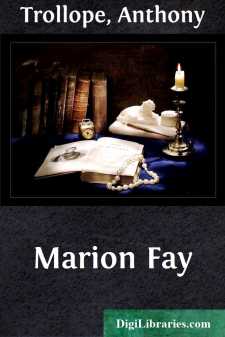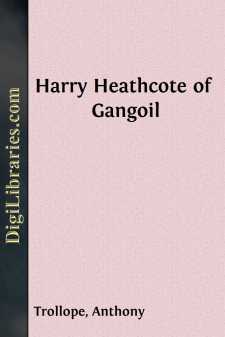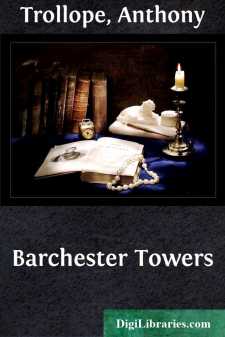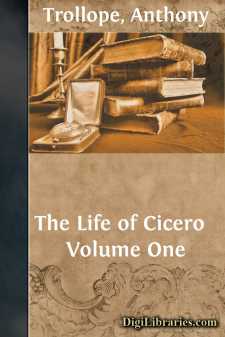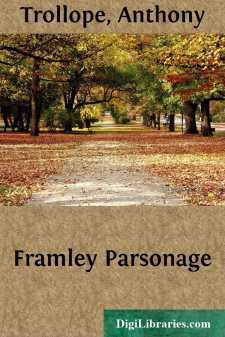Categories
- Antiques & Collectibles 13
- Architecture 36
- Art 48
- Bibles 22
- Biography & Autobiography 813
- Body, Mind & Spirit 142
- Business & Economics 28
- Children's Books 14
- Children's Fiction 11
- Computers 4
- Cooking 94
- Crafts & Hobbies 4
- Drama 346
- Education 46
- Family & Relationships 57
- Fiction 11829
- Games 19
- Gardening 17
- Health & Fitness 34
- History 1377
- House & Home 1
- Humor 147
- Juvenile Fiction 1873
- Juvenile Nonfiction 202
- Language Arts & Disciplines 88
- Law 16
- Literary Collections 686
- Literary Criticism 179
- Mathematics 13
- Medical 41
- Music 40
- Nature 179
- Non-Classifiable 1768
- Performing Arts 7
- Periodicals 1453
- Philosophy 64
- Photography 2
- Poetry 896
- Political Science 203
- Psychology 42
- Reference 154
- Religion 513
- Science 126
- Self-Help 84
- Social Science 81
- Sports & Recreation 34
- Study Aids 3
- Technology & Engineering 59
- Transportation 23
- Travel 463
- True Crime 29
Anthony Trollope
Anthony Trollope (1815-1882) was a prolific English novelist best known for his series of novels set in the fictional county of Barsetshire, including "Barchester Towers" and "The Last Chronicle of Barset." His works, often exploring the intricacies of Victorian society and politics, feature complex characters and detailed social commentary. Trollope also had a notable career in the British postal service, where he is credited with introducing the red pillar box (mailbox).
Author's Books:
Sort by:
by:
Anthony Trollope
CHAPTER I. THE TWO SISTERS. When Egbert Dormer died he left his two daughters utterly penniless upon the world, and it must be said of Egbert Dormer that nothing else could have been expected of him. The two girls were both pretty, but Lucy, who was twenty-one, was supposed to be simple and comparatively unattractive, whereas Ayala was credited,—as her somewhat romantic name might show,—with...
more...
by:
Anthony Trollope
CHAPTER I. THE EARLY HISTORY OF LADY LOVEL. Women have often been hardly used by men, but perhaps no harder usage, no fiercer cruelty was ever experienced by a woman than that which fell to the lot of Josephine Murray from the hands of Earl Lovel, to whom she was married in the parish church of Applethwaite,—a parish without a village, lying among the mountains of Cumberland,—on the 1st of June,...
more...
by:
Anthony Trollope
THE RAY FAMILY. There are women who cannot grow alone as standard trees;—for whom the support and warmth of some wall, some paling, some post, is absolutely necessary;—who, in their growth, will bend and incline themselves towards some such prop for their life, creeping with their tendrils along the ground till they reach it when the circumstances of life have brought no such prop within their...
more...
by:
Anthony Trollope
CHAPTER I. THE MARQUIS OF KINGSBURY. When Mr. Lionel Trafford went into Parliament for the Borough of Wednesbury as an advanced Radical, it nearly broke the heart of his uncle, the old Marquis of Kingsbury. Among Tories of his day the Marquis had been hyper-Tory,—as were his friends, the Duke of Newcastle, who thought that a man should be allowed to do what he liked with his own, and the Marquis of...
more...
by:
Anthony Trollope
CHAPTER I GANGOIL. Just a fortnight before Christmas, 1871, a young man, twenty-four years of age, returned home to his dinner about eight o'clock in the evening. He was married, and with him and his wife lived his wife's sister. At that somewhat late hour he walked in among the two young women, and another much older woman who was preparing the table for dinner. The wife and the wife's...
more...
by:
Anthony Trollope
Chapter I Folking Perhaps it was more the fault of Daniel Caldigate the father than of his son John Caldigate, that they two could not live together in comfort in the days of the young man's early youth. And yet it would have been much for both of them that such comfortable association should have been possible to them. Wherever the fault lay, or the chief fault—for probably there was some on...
more...
by:
Anthony Trollope
CHAPTER I In the latter days of July in the year 185––, a most important question was for ten days hourly asked in the cathedral city of Barchester, and answered every hour in various ways—Who was to be the new bishop? The death of old Dr. Grantly, who had for many years filled that chair with meek authority, took place exactly as the ministry of Lord –––– was going to give place to that...
more...
by:
Anthony Trollope
Chapter I. HIS RETURN FROM EXILE. Cicero's life for the next two years was made conspicuous by a series of speeches which were produced by his exile and his return. These are remarkable for the praise lavished on himself, and by the violence with which he attacked his enemies. It must be owned that never was abuse more abusive, or self-praise uttered in language more laudatory. Cicero had now done...
more...
by:
Anthony Trollope
Chapter I. INTRODUCTION. I am conscious of a certain audacity in thus attempting to give a further life of Cicero which I feel I may probably fail in justifying by any new information; and on this account the enterprise, though it has been long considered, has been postponed, so that it may be left for those who come after me to burn or publish, as they may think proper; or, should it appear during my...
more...
by:
Anthony Trollope
"Omnes Omnia Bona Dicere" When young Mark Robarts was leaving college, his father might well declare that all men began to say all good things to him, and to extol his fortune in that he had a son blessed with so excellent a disposition. This father was a physician living at Exeter. He was a gentleman possessed of no private means, but enjoying a lucrative practice, which had enabled him to...
more...





